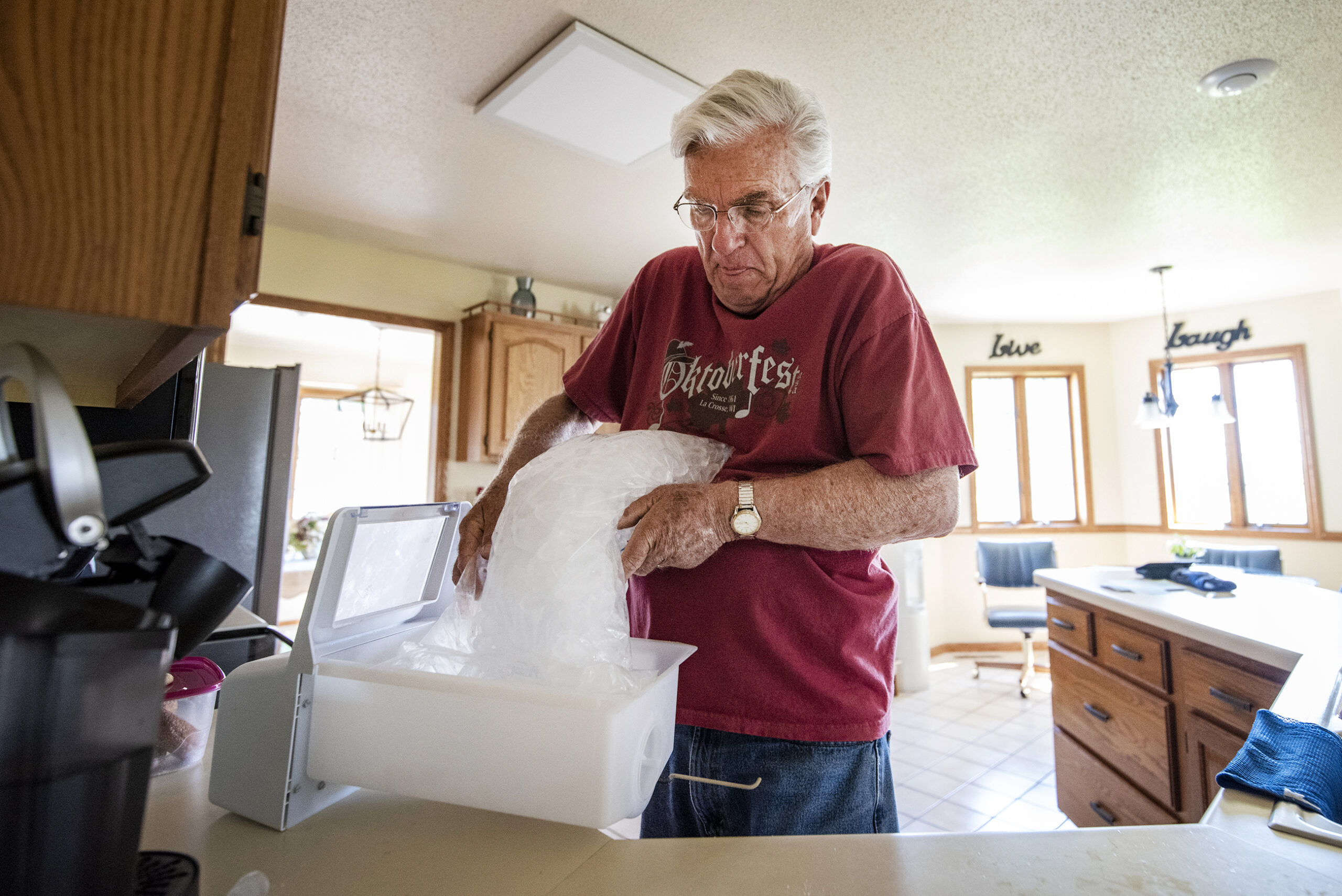A state appeals court has upheld a lower court ruling that deals a blow to state environmental regulators’ authority to force businesses to clean up PFAS pollution under Wisconsin’s spills law.
In a 2-1 decision Wednesday, a three-judge panel said policy changes by the Wisconsin Department of Natural Resources to address PFAS are unlawfully adopted rules that can’t be enforced. That includes regulation of the chemicals, and any associated limits on PFAS, as hazardous substances under the spills law.
The decision affirmed a Waukesha County circuit court judge’s ruling in favor of Wisconsin Manufacturers and Commerce, or WMC. That decision, issued nearly two years ago, stated regulators must first list PFAS as hazardous substances through the state’s rulemaking process.
“Today’s decision by the Court of Appeals protects the public’s right to know what the law requires,” said Scott Rosenow, an attorney for WMC, in a statement. “If the DNR expects every Wisconsinite to comply with the Spills Law, the DNR needs to explain in an official rule which PFAS it thinks are hazardous.”
The ruling could have far-reaching implications for the DNR’s ability to address PFAS contamination in groundwater. Since the lawsuit was first filed, the state has passed standards for the chemicals in drinking water and surface water, but there are still no state standards for the chemicals in groundwater.
The Department of Justice represented the DNR in the case. Wisconsin Attorney General Josh Kaul said the agency will appeal the decision to the Wisconsin Supreme Court.
“This would undermine our ability in Wisconsin to protect safe and clean drinking water,” Kaul told WPR. “We can’t let that happen at a time that we’re facing emerging contaminants like PFAS.”
A prior hold on the lower court ruling remains in effect. If the decision were allowed to stand, the DNR would have to wait on legislation from lawmakers that would allow the agency to continue crafting regulations for PFAS in groundwater — a process that can take years. The agency was forced to abandon its proposed groundwater standards in December due to excessive compliance costs. Around one-third of state residents rely on private wells that draw from groundwater.
Both Republicans and Democrats in the Legislature have bills that would allow the agency to continue its work, but the proposals appear to be dead for this legislative session. The Assembly held its last scheduled floor session in February.

News with a little more humanity
WPR’s “Wisconsin Today” newsletter keeps you connected to the state you love without feeling overwhelmed. No paywall. No agenda. No corporate filter.
PFAS, or perfluoroalkyl and polyfluoroalkyl substances, are a class of thousands of synthetic chemicals found in firefighting foam and everyday products like nonstick cookware and stain-resistant clothing.
Multiple studies of people living and working in areas with high PFAS levels have shown links to serious health effects that include increased risk of kidney and testicular cancers, thyroid disease, fertility issues and reduced effectiveness of vaccines.
The appeals court decision is a win for WMC, which filed a lawsuit against the state DNR, the agency’s secretary and its policy-making board in 2021. The business group was joined in the suit by Oconomowoc-based dry cleaner Leather Rich.
They argued the DNR lacked explicit authority to require the business to address PFAS pollution under its cleanup programs without standards for the chemicals.
In the suit, the groups argued the DNR bypassed the state’s rulemaking process as part of issuing an interim policy under a voluntary cleanup program that required participants to test for PFAS and address contamination. They said that forced the owner, Joanne Kantor, to invest more than $235,000 toward cleaning up the property, delaying her retirement in order to offset the cost of the investigation.
“As a small business owner, I think it is fair for the government to tell me what they’re expecting me to comply with and provide clear requirements,” Kantor said in a release. I hope this ends my family’s years-long battle with the DNR and allows me to finally wind down my business, and also hope that this decision protects other families from having to go through anything similar.”
WMC and Leather Rich argued the interim decision is an unlawfully adopted rule that should be declared “invalid and unenforceable.” The DNR has maintained the state’s spills law gives the agency broad authority to issue the policy and require testing and cleanup of the chemicals.
In Wednesday’s decision, the appeals court sided with WMC. Judge Lisa S. Neubauer dissented in the ruling.
“Today, for the first time since the statute was enacted, the court holds that the DNR must promulgate rules identifying certain substances as hazardous before the Spills Law applies to discharges of those substances,” Neubauer wrote.

Environmental groups said the case undermines more than 40 years of protections under the state’s spills law, limiting the agency’s ability to force polluters to clean up contamination. Communities across the state are struggling with PFAS contamination. They include the cities of Marinette, Eau Claire, and Wausau in addition to towns like Peshtigo, Campbell and Stella.
Midwest Environmental Advocates, or MEA, filed a brief in the case on behalf of environmental and public health advocates, as well as a local leader of a PFAS-contaminated community. MEA Staff Attorney Rob Lee said they’re disappointed with the ruling.
“We are confident that the DNR’s efforts to keep Wisconsin families safe from PFAS contamination will ultimately be vindicated,” Lee said in a statement. “In the meantime, a stay on the decision is in effect, which will limit the harm suffered by those living in and around PFAS contamination sites in Wisconsin until this case is ultimately resolved.”
The lawsuit is one of two filed by WMC that challenged the agency’s authority to regulate PFAS. A Jefferson County judge ruled in 2022 that the DNR can test for PFAS as part of a separate case about wastewater sampling.
“WMC is using the courts to attack bedrock environmental laws that are used to hold PFAS polluters accountable for the harm they have caused in communities like mine,” Doug Oitzinger, a city alderperson in Marinette, said in a release.
Environmental advocates say it’s part of a larger effort to rollback environmental protections. Kaul agreed.
“This certainly appears to be part of a larger effort to limit the ability of agencies like the Department of Natural Resources to protect Wisconsinites,” Kaul said.
Wisconsin Public Radio, © Copyright 2026, Board of Regents of the University of Wisconsin System and Wisconsin Educational Communications Board.






